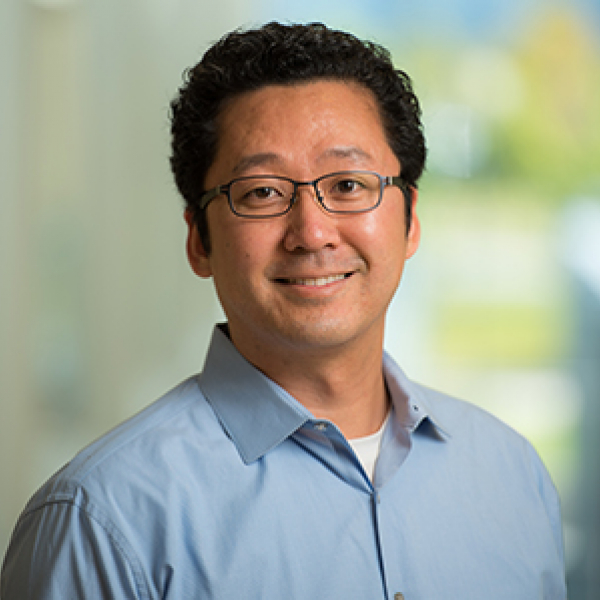Dr. James Moon Wins NSF CAREER Award, Works to Develop New HIV Vaccine

James Moon, PhD, has been awarded a National Science Foundation’s (NSF) Faculty Early Career Development (CAREER) Program award. The CAREER award is the NSF’s most prestigious recognition of junior faculty who exemplify the role of teacher-scholars through outstanding research, excellent education, and the integration of education and research within the context of the mission of their organizations. Dr. Moon will receive $504,993 in funding over the next five years.
Dr. Moon, John Gideon Searle Assistant Professor of Pharmaceutical Sciences, College of Pharmacy, and Assistant Professor of Biomedical Engineering, College of Engineering, and his laboratory are particularly interested in the development of therapeutics and diagnostics at the interface of immunology and pharmaceutics. Specifically, they are developing new drug delivery systems engineered to improve vaccine delivery to lymphoid organs and to manipulate immune functions in the context of infectious diseases, cancer, and autoimmunity.
“In this CAREER project, we propose to develop novel biomaterial-based approaches for vaccination against infectious pathogens, including HIV-1,” explains Dr. Moon. “Specifically, the proposed studies will test the hypothesis that ‘pathogen-mimicking’ nanomaterials engineered for optimized delivery of vaccine components to lymphoid tissues will induce robust T and B cell immune responses against HIV-1. We will synthesize multilamellar vaccine platforms (MVPs) and investigate the impact of vaccine nano-carriers on immune activation. We seek to identify structure-function relationships that govern the interaction between biomaterials and the immune system in cellular, tissue, and organism levels,” continues Dr. Moon. “Nano-vaccine technology established in this project could be easily adapted to other infectious pathogens, thus broadening the scope of the proposed work beyond HIV vaccine design. These studies are expected to have a wide impact on a range of disciplines, including biomaterials, drug delivery, vaccinology, and immunology.”

Dr. Moon is also planning to integrate research with educational activities designed to bring awareness and build interest in the emerging field of nanoscience. Dr. Moon hopes to achieve this by encouraging underrepresented minorities to pursue careers in STEM-related fields. Additionally, U-M students will participate in international collaboration with colleagues in South Africa and become trained as student ambassadors on nanoscience and global vaccination efforts. Student ambassadors and Dr. Moon will design a series of workshops entitled “MVPs in Michigan” to communicate the latest research discoveries to the general public on the topic of nanotechnology, nanomedicine, and vaccine design. “MVPs in Michigan” will be geared toward underrepresented minority middle and high school students. “I anticipate that engaging these students early in their education will increase their interest and awareness in a STEM-related career path,” adds Dr. Moon.



